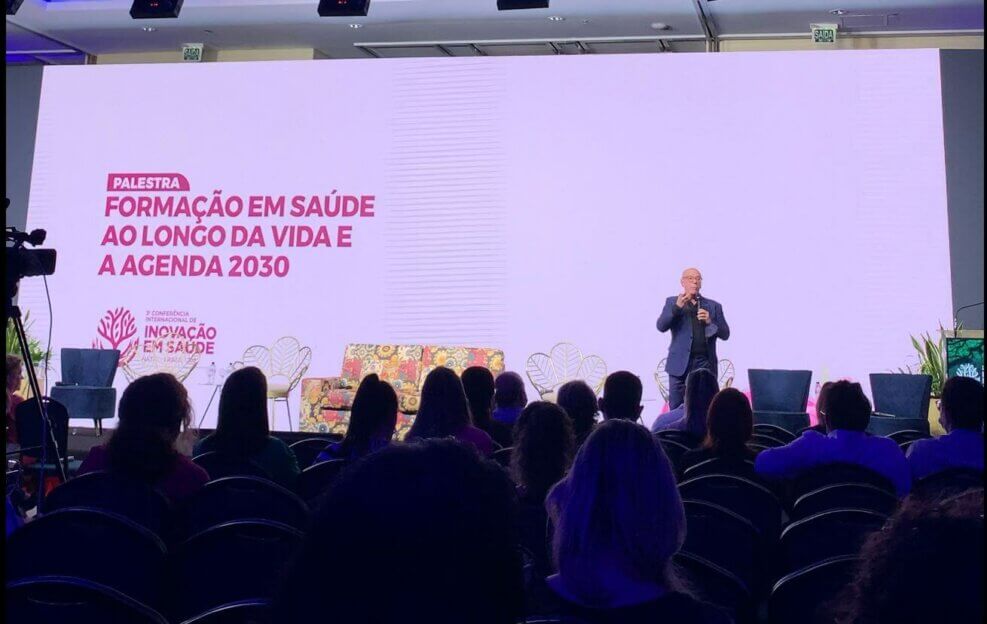By Gabriel Mascena (Ascom/LAIS)
Education, beyond a teaching and learning area, is a tool for equality and resilience. From this perspective, the lecture “Education in Lifelong Health and the 2030 Agenda” was given by the Vice-Director of the Multidisciplinary Institute of Human Training with Technologies of the Rio de Janeiro State University (IFHT/UERJ) and researcher of the Laboratory of Technological Innovation in Health (LAIS), Carlos Alberto Oliveira, in the last afternoon of lectures of the 3rd CIIS.
As the first topic of his presentation, Carlos brought failures observed in the areas of health and education raised by Agenda 2030, a plan that aims to take transformative and sustainability measures all over the world. The speaker highlighted issues such as the shortage of health professionals, especially in rural and remote areas, the increased migration of qualified professionals, and an education marked by outdated content and resistance to new models of care in teaching and learning.
Among the 17 objectives and more than 169 goals outlined by the Agenda, those that ensure collective health, health financing, effective actions for the democratization of education, and the strengthening of partnerships between countries were emphasized in reference to the 3rd IISD. These actions, according to the researcher, promote equality. “We want equal people, equal education, and absolutely equal education,” he says.
Regarding covid-19, Carlos brought up the importance of distance education and health education. With the motto “No one left behind,” he emphasized the importance of primary care in supporting the lives threatened by the pandemic. “We had a new virus, no knowledge of treatments, no medicine, but we had to try to save lives. In that process, it was fundamental that we put health and quality education together,” he recalls. With emphasis on the AVASUS platform, responsible for producing integrated and accessible knowledge through virtual courses for health professionals, the researcher highlighted that it was during the pandemic that health professionals realized that technological mediation was the only way to acquire fast and reliable information. “If we hadn’t had technological mediation, more people would have died,” he says.
Are we ready?
About actions for the future, the researcher highlighted some challenges to be achieved. Among them, the democratization of broadband as a human right for free access to knowledge; the alignment of educational programs for the formation of careers in health; the flexibility of models of educational activities taking into account the trajectory of students; as well as institutional actions such as guided planning, working with data and evidence, leadership and governance, and the promotion of an education aligned to people’s health needs were highlighted.





